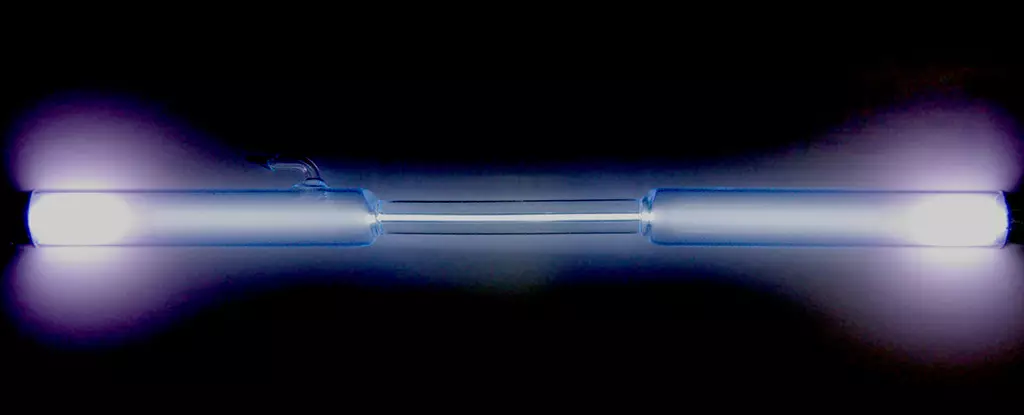Alzheimer’s disease is a complex neurodegenerative condition that progressively impairs memory, cognitive function, and emotional well-being. Despite decades of research, the root causes of this debilitating disease remain elusive. Two hallmark features of Alzheimer’s include the buildup of protein clumps—amyloid plaques and tau tangles—and chronic inflammation in the brain. While these factors have traditionally been targeted separately in treatment approaches, recent studies suggest that a novel intervention using xenon gas might provide a more holistic solution by addressing multiple facets of the disease concurrently.
Xenon, a noble gas, has a remarkable history in the medical field, primarily known for its use as an anesthetic since the mid-20th century. Its inert nature made it a safe option for various surgical procedures. Nonetheless, recent investigations have revealed its potential therapeutic effects beyond anesthesia. Researchers at Washington University and Brigham and Women’s Hospital have taken a pioneering step by examining xenon’s ability to influence brain pathology associated with Alzheimer’s in mouse models. The gas, once considered simply inert, is now emerging as a significant player in the quest to combat one of the leading causes of dementia.
Microglia are the brain’s primary immune cells, responsible for maintaining homeostasis and responding to injury. They can transition between various states, from resting to activated, depending on the surrounding environment. In healthy conditions, activated microglia help clean up debris, such as damaged neurons and harmful proteins. However, prolonged activation due to chronic inflammation, as witnessed in Alzheimer’s, can lead to further neuronal damage and worsening of symptoms. The Washington University study discovered that xenon inhalation could switch microglia from a harmful activated state to a restorative pre-Alzheimer’s state, promoting cellular health and reducing inflammation.
In the experimental framework, mice genetically predisposed to develop Alzheimer’s-like symptoms were administered xenon via inhalation. Results indicated a significant transformation in the microglia’s activity. These cells began effectively engulfing amyloid plaques, thereby reducing their size and quantity. This newly activated state of microglia not only cleared protein deposits but also mitigated the chronic inflammation typically associated with Alzheimer’s. By fostering an environment conducive to healing, xenon’s therapeutic effects may encompass more than merely addressing amyloid accumulation; instead, they might provide a systemic approach to Alzheimer’s pathology.
Current therapeutic drugs targeting amyloid proteins have shown limited success, primarily offering temporary reductions in amyloid levels and modest declines in the progression of cognitive impairment. The introduction of xenon as a treatment paradigm offers a paradigm shift—shifting the focus from solely targeting amyloid plaques to enhancing the overall immune response of the brain. By restoring the balance within the microglial population, xenon may not only address amyloid build-up but also counteract tau deposition, reduce neuroinflammation, and support synaptic integrity. This integrative strategy could lead to more comprehensive and sustained improvements in cognitive function.
As promising as xenon’s potential may seem, scientific claims require rigorous validation. The initiation of clinical trials in healthy volunteers is scheduled for this year, and the scientific community is awaiting these outcomes with great anticipation. Positive results could propel xenon to the forefront of Alzheimer’s treatment options and may eventually alter the landscape of how we approach neurodegenerative diseases. However, challenges such as dosing, delivery mechanisms, and long-term effects need thorough investigation before xenon can be deemed a viable treatment for Alzheimer’s.
While the fight against Alzheimer’s disease is far from over, the exploration of xenon as a therapeutic agent offers a glimmer of hope. By targeting the brain’s immune response and promoting a healthy microglial state, it holds the potential to reshape our approach to treating this devastating disorder. With continued research and unwavering commitment from the scientific community, we may soon witness a breakthrough that transcends traditional treatments, transforming how we understand and manage Alzheimer’s disease. Although xenon is an unconventional choice, its application as a strategy to revamp the brain’s immune processes could make it a revolutionary ally in the battle against cognitive decline.

